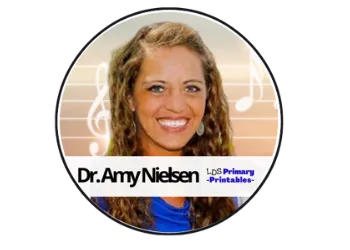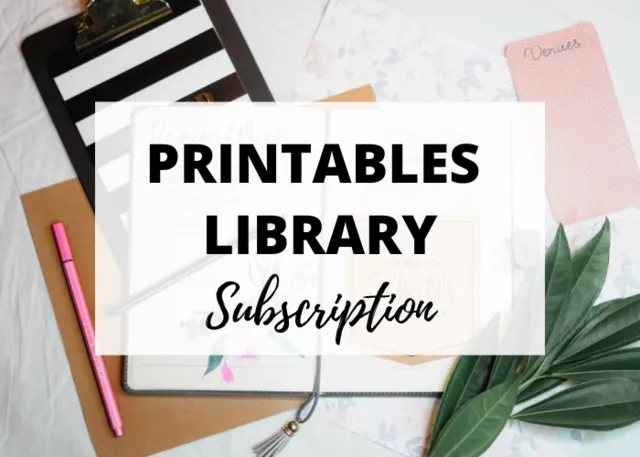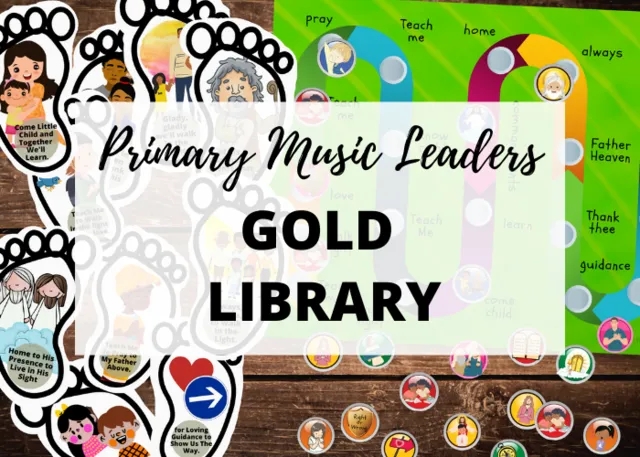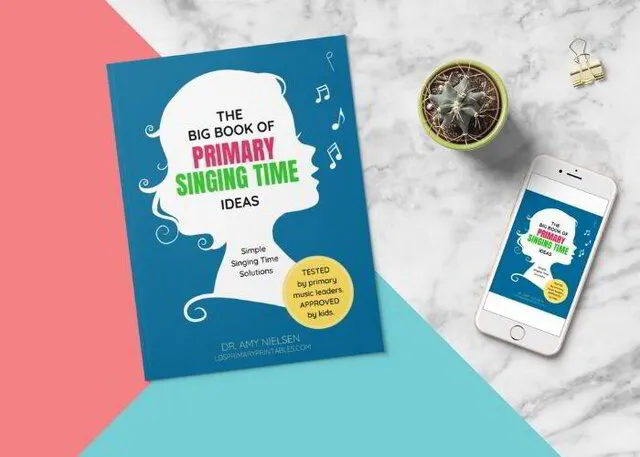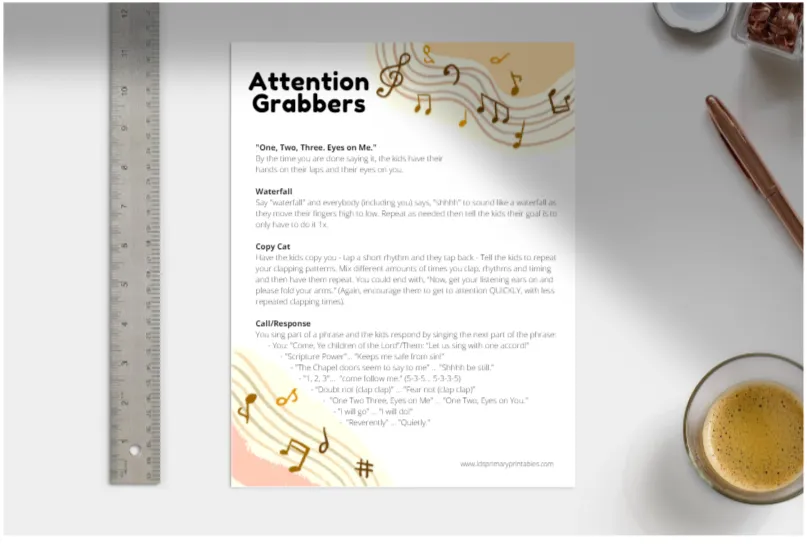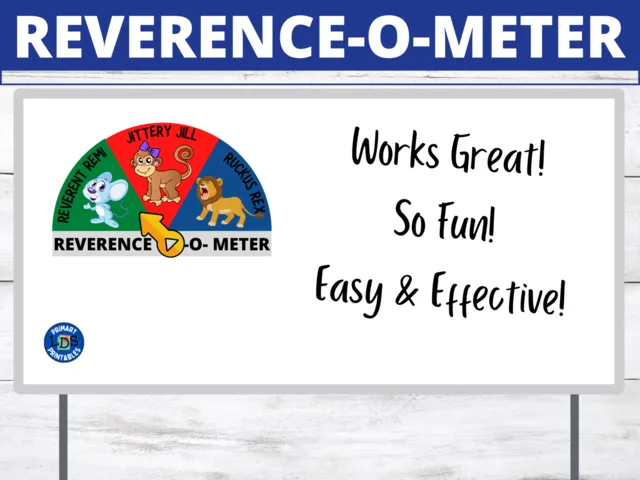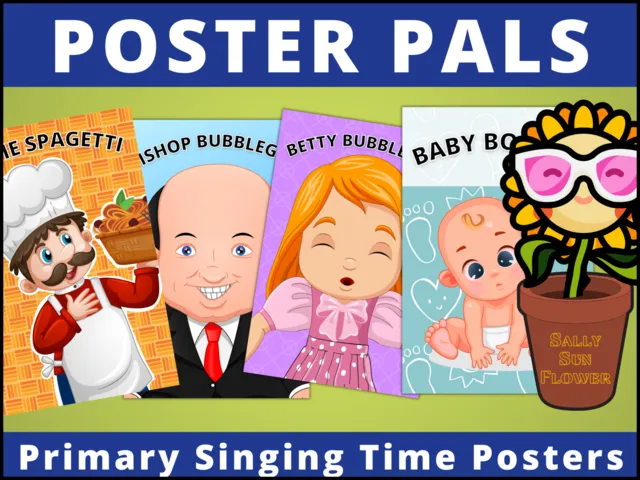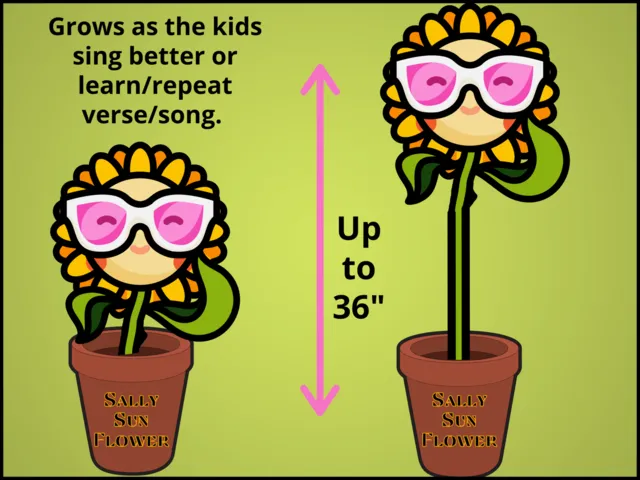How To Deal With Discipline: Rules & Reverence In Primary Singing Time
Keyword Topics: lds primary songs, lds childrens songbook, lds primary song book, primary music leaders, lds primary singing time ideas, primary chorister, lds chorister, lds primary chorister, lds primary singing time, lds primary, lds primary music, lds singing time ideas, primary songs, lds primary printables, rules and reverence, discipline in primary singing, lds primary music leader
Having a hard time with kids behavior during Primary Singing Time?
Wondering how to maintain order and calm?
Wondering how to better handle transitions, wiggles, and more?
Then read on for advice, 3 rules you can easily implement and review each Sunday, a list of CUE & CALL/RESPONSE ideas to help with getting the kids attention, and helpful motivational resources.
Hello and welcome to LDS Primary Printables. I'm so excited you are here! LDS Primary Printables provides Come Follow Me, Gospel Topics, Primary Events, and Primary Singing Time Resources for Families, Primary Teachers and Primary Music Leaders.
--------------------------------------------
Join the mailing list for updates, specials & freebies.
I have taught thousands of children in schools music, from toddler through adult.
With children I've learned it's absolutely essential to make sure they understand what you expect (rules and expectations), how things are going to be done (routine), and have them PRACTICE those things (hands-on application), whether it's how to line up, put away instruments, use props, and anything else! In addition, being CONSISTENT in your expectations and following through with consequences is also absolutely essential! It not only shows the kids you are in charge, but it builds trust, respect, and sense of safety.
When I taught music in the schools, I ALWAYS spent the first couple of classes practicing and reinforcing the rules and expectations. When you first enter the calling as Primary Music Leader, take that first Sunday and tell the kids what you expect, how you plan to do things (general outline of the kinds of activities you will do, how you'll deal with transitions, different instruments and props, etc.). Then, HAVE THE KIDS PRACTICE THOSE THINGS (with some singing too, of course!). And when they aren't as good at something as you'd like, have a bit of fun with it... "Oh, that took you foreeeeeeeeeever to look at me and get quiet. Let's see if we can cut that time down to less than 3 seconds..." (Humor is great to have in your arsenal!).
- Set up the rules, go over them very briefly each Sun.*
- Be absolutely consistent in implementing and following-through. (Kids need to know the rules and consequences and know you mean it. There have to be boundaries for behavior so that a child's behavior doesn't affect the rest of the group).
- Teach kids the difference between being reverent and being quiet.
- Don't be afraid to practice the rules if kids need to be reminded of the expectation.
- Keep transitions very brief and move right from one activity to the next with little to no pauses or stops.
- Set boundaries and expectations at the beginning of new activities where you can anticipate problems in advance.
- Set up expectations for the teachers as well as the students.
(You can even tease-play with the kids and teachers by asking the kids, "Are your teachers following the rules too? You check on your teachers and make sure they are doing what they are suppose to too... Are they singing out good too?").
- Try not to say, "I" and keep it about the kids (example: "I want you to..."). You don't need that first part. Just tell the kids what you want them to do without adding, "I want you to..." on the beginning. (Ex: "I want you to touch your nose then fold your arms" vs. "Touch your nose and fold your arms").
- Let kids have 5 seconds of "free play" with an instrument. (When I taught elementary school music, I knew kids wanted the chance to "just play" an instrument they were given freely. So, every time I passed out an instrument, I made sure I have the kids time to do that, but it only lasted 5-10 seconds. I set up the expectation, "When I say GO, you can play your instrument freely and appropriately-they know that meant no banging, touching other students, not pulling on parts they shouldn't, etc.- then STOP once I say 'Freeze!'" Then I let them play. The kids were then much better at paying attention and only using the instruments when they were supposed to in the activities afterwards. So, my advice is to do the same thing in primary. Let the kids "free play" with their instruments as well as use it as you've devised for the activity.
- Provide Variety: Give the kids opportunities to stretch their legs and move around. Alternate sitting and standing activities. Alternate slow/fast songs. Alternate the types of activities you do from one song to another (ex: brain game vs. movement game), etc.
We have three rules and go over them every. single. week. Seriously, it is so helpful!
The three rules came from years of trial and error by a life coach named Kirk Duncan. They encompass every behavior or issue you might have.
They are:
1. Be Reverent and Respectful
(The kids understand this one pretty well, but if need I say, let’s practice, show me how to be reverent, or what does it mean to be respectful?)
2. Listen and Be Present
(I ask every week if being present is like a birthday present, they say no, it means to point your brain at me or at our activity. This helps SO much when I need their attention and say, "point to your brains here, please.")
3. Manage Your Voice
(This means we only use our voice when it’s our turn, and when we do use our voices, we speak with kindness like Jesus).
Every week before I start, I ask the kids what are our rules? They are always excited to tell me what they are. I do a very brief explanation of the rules, emphasizing anything we have had a problem with, for us usually the point your brain at me part.
After the kids have said all the rules, display the poster of the rules. [GET THIS CUTE PRIMARY RULES IN THE GOLD LIBRARY]
Then I say, "If you promise to follow our rules today, please raise your hand." (If they want to have fun and participate with you, they need to follow the rules. If they refuse to raise their hand, tell them the presidency will go get their parent to sit with them. This has never happened before, me just mentioning once or twice that those who won’t agree to follow the rules need to have a parent come sit with them convinces them to raise their hand.)
I wait for a second for everyone to raise their hand and then start. Any time I have any problem, I say please keep your promise to be respectful/point your brain at me, etc.
Using this system has been amazing for me through years of teaching primary and now in singing time. If I ever notice that I’m having discipline issues, I’ve realized it’s because I forgot to go over the rules. It only takes two minutes or less to go through them so, it’s definitely worth it! Especially when I say ok, please point your brain at me or please point your brain at (whoever’s turn it is to talk). Hope this will be helpful for you guys ❤️
(Many thanks to Anna M. Spackman for sharing!)
CUES TO HELP WITH ATTENTION
"One, Two, Three. Eyes on Me."
By the time you are done saying it, the kids have their hands on their laps and their eyes on you.
Waterfall
Say "waterfall" and everybody (including you) says, "shhhh" to sound like a waterfall as they move their fingers high to low. Repeat as needed then tell the kids their goal is to only have to do it 1x.
Copy Cat
- Have the kids copy you - tap a short rhythm and they tap back - Tell the kids to repeat your clapping patterns. Mix different amounts of times you clap, rhythms and timing and then have them repeat. You could end with, “Now, get your listening ears on and please fold your arms.” (Again, encourage them to get to attention QUICKLY, with less repeated clapping times).
Call/Response
- You sing part of a phrase and the kids respond by singing the next part of the phrase:
-You sing, "Come, Ye children of the Lord” and they sing back, “Let us sing with one accord!”
- "Scripture Power"... "Keeps me safe from sin!"
- "The Chapel doors seem to say to me" ... "Shhhh be still."
- "1, 2, 3"... "come follow me." (5-3-5... 5-3-3-5)
- "I will go" ... "I will do!"
- “Doubt not (clap clap)" ... "Fear not (clap clap)”
- "Reverently" ... "Quietly."
- "One Two Three, Eyes on Me" ... "One Two, Eyes on You."
If You Can Hear Me...
If you can hear me, touch your nose. If you can hear me, touch your head. If you can hear me, pull your ears. If you can hear me, fold your arms.” Start with the first direction louder and each time get quieter till you aren't talking at all, just moving with the kids copying you.
Here's some more ideas from iheartprimarymusic:
"If you can hear me, show me your...
Book of Mormon hands (put hands together like a book)
Prayer hands (put hands palm to palm)
Steeple hands (touch tips of fingers together to make a steeple)
Reverence arms (fold arms)
Make up as many as you'd like.
Big Breaths
“Pretend like you’re going to blow a REEEEEALLY big balloon with me. So you’re going to need a big breath. (Breath in deep together – fill your lungs all the way and blow out), do it again. And one more time to make the balloon HUUUUUGE! Good, now fold your arms and quiet lips."
Bubble Cheeks
I have never used this but Sabrina Barton (idea credit) has - Tell the kids to show you their bubble cheeks and they make their cheeks big and puffy... Then once you see everyone is doing it, tell them to "release." The great thing about this, they can't talk when they're doing it!
Freeze
Call out FREEZE! Change positions and FREEZE! One more time...
Epic position and FREEZE!
Secret Signal
I have “secret signals” in my music class. If my hand touches my ear, that means sit down. If I raise my hand above my head, that means stand up. Non verbal cues really make transitions from one activity to the next smooth. Don’t over explain, one kid will notice and then the rest will follow. Less talking, more singing and moving (Idea credit: Annie Reed)
I'll Wait...
I only use this one when it's been a round day, kids just aren't listening after repeated practices, etc. Say, "I'll wait until everyone is quiet and reverent" and then wait. The awkward silence usually works to remind them how they should behave. Then remind them that the time it took to get quiet and reverent is lost and is taken from singing game time, leaving less time to do those fun activities. (As a teacher, I used this one when nothing else worked. Then I waited a bit longer with the kids all in silence, just to reinforce the thought that they could either sit there practicing being quiet or sing and have fun doing music. I also reinforced this by verbally remind the kids they had two choices, to sit and practice being quiet for THE ENTIRE REMAINING CLASS TIME, or to have fun doing music appropriately. The kids ALWAYS chose the latter. ;) ... "How fun is this? Just sitting here having to practice being quiet and paying attention? Should we do this for the rest of class? We can. But I'd much rather be singing and enjoying music time, wouldn't you? It's a privilege to be here and to get to do music. We get to enjoy music together by behaving respectfully and appropriately, as our primary music rules say. What would you rather do, sit practicing being quiet for the rest of class or enjoy doing music together?" ... You get the idea.
Picture of Jesus
Show a picture of Christ.
Say, “Stand up if you know who this is.
Clap twice because He is the Christ.
Jump three times because He is your Brother.
Sit down, He is your Redeemer.
Take a deep breath for He is The Life.
Fold your arms in reverence, He is your Savior and the way back to our Father in Heaven”.
"Now, let's sing a song from our hearts for Heavenly Father and Jesus so they can feel
our love for Them."
Use Their Names
"If Lincoln sings the song really good with all of you this time, we can start a new song." Or "what do you think about that, Tate?" Calling the kids by their name makes them feel like they are both important and being closely watched.
Staring Contest
My primary kids were super distracted so I had them turn to their partners and do a staring contest while singing. They loved it, it was fun and they had to stay focused on their partner.
(DO THIS ONE WHILE SINGING).
Mentor
If you have combined primary, assign the older kids to a younger class to "mentor" them.
Put them in the front two rows with the "littles" after you have a discussion with them that you needed their help. Most f the time they will turn out wonderful helpers!
MOTIVATIONAL VISUAL AIDS
Reverence-O-Meter
Looking for a super simple way to manage noise and disruption in your classes, sharing time, group singing time, choir and more?
Then get the REVERENCE-O-METER! It's an easy, effective, and fun way to get your kiddos calmed down. Just move the arrows back and forth according to the kids behavior. It gives them a visual cue as to how they are doing and they love the challenge of keeping the arrow on the reverence section!
Sing-O-Meter
Looking for a super simple behavior and singing management tool that kids love?
Then get the SING-O-METER! It's an easy, effective, and fun way to get your kiddos to pay attention and sing well. The goal is for the kids to fill up the sing-o-meter all the way to the top by the end of singing time. NOTE: I never (or very, very rarely move the meter down), only on exceptionally bad days - to keep things as positive as I can. "Oh the meter has been sitting there at the same level for a while. What can we do to get it filling up again?"...
Poster Pals
Looking for a super simple behavior and singing management tool that kids love? Switch things up with these fun POSTER PALS.
Add a balloon - it gets bigger as the kids sing and behave well.
Add some yarn - it gets longer (or shorter) ...
Sally Sunflower - grows taller the better the kids sing and behave.
WHEN KIDS AREN'T BEHAVING...
Change the Proximity
Go and stand near the person who needs redirection while continuing to lead the singing time.
Compliment
Name kids that are doing what they are suppose to (and be SPECIFIC!):
"Suzie, thanks so much for having your eyes on me!"
"Jared, I see you are sitting quietly and paying attention! Good job!"
Remind
Briefly remind kids of the rules... Have them practice, if needed.
Suggestions: Always set up the expectations for an activity BEFORE you do it.
With instruments or props, give the kids 5-6 seconds to "free play." Tell them before
hand that once you say STOP, that everyone should hold the instrument still and look at you.
Then go right into the movement activity with no more pause.
BE VERY CLEAR ON YOUR EXPECTATIONS.
ALWAYS FOLLOW THROUGH. AND BE VERY, VERY CONSISTENT.
OTHER SUGGESTIONS
- Try to build a relationship with the kids that might have issues in the Primary outside of Primary.
- Try to include activities that challenge them.
- Invite the parents for a week or two. (Some say this doesn't help).
- Talk to the parents.
- Mix the classes up. (We started this thing called popcorn, where they would have to "pop up" and choose a new person to sit by. Teachers would move too. Changing the dynamic often did wonders for participation and reverence...and some Sundays we'd have to do popcorn 2-3 times to get the children through a particularly wiggly Sunday).
- If you keep the kids actively engaged, there will be less problems.
- Keep them behind after singing time, tell them the rules and explain why you need them to behave the way you do. Explain the consequences if they don’t follow the rules and remind them that Primary singing time is a time to musical play together and thank Heavenly Father and Jesus through music.
- Have a meeting during singing time. Tell them that you have noticed the problem and let them participate in the solution.
- Ask for help from the Primary Presidency, Bishopric, Parents.
- If you have older kids (boys especially) that don't like to sing, share some video clips of male singers then ask if it would be "cool" if the world only had women singers...
- Make sure the kids know if someone isn’t singing it’s not a big deal but being disruptive isn’t okay. (I encourage them to mouth the words, at a minimum, so I know they are learning the words, which is important). Don't force kids to sing or make it a power struggle. Focus on the positive with comments like, “The more you sing the happier you will be.” “Singing is good for the brain and will help you learn.” “Music helps us love each other.” "The song of the heart is a prayer unto me - we can pray to God through singing. And we can praise and thank God through singing!"
- When the kids complain, or get irreverent with the activity, give them two simple options: 1. Do the activity as I’ve prepared it...with good attitudes and your best singing voices (or at least sit quietly and don’t disrupt everyone else). -Or- 2. We will fold our arms and sing for 20 minutes. You choose. They always choose 1.
- If you get desperate and things are out of control, stop everything, sit down and tell the kids we are all going to sit in silence and listen to the pianist play for 5 minutes, that you love them but we can't continue singing time with the behavior that has gone on. After 5 minutes see if they are ready to try again. If not, continue sitting and listening to the piano.
- INVITE THE BISHOPRICK IN and have the Bishop give them a loving but firm talk about how hard all the teachers and leadership work for them each Sunday and during the week and how they need to remember that and act accordingly.
I am most certainly for boundaries and being absolutely consistent in not letting kids get away with bad behavior, but always trying to come from a place of positivity and love rather than punishment and anger. However, if things get extreme, and all the other children are being negatively effective, there can come a point where additional actions (not always positive) need to happen. What and when that is I leave to each leader to decide.
Whether it's Primary or not, kids need to understand that:
1) disrespectful behavior has consequences - hurts other people on a personal level. 2) kind respectful behavior helps people to be happy. [Have a bucket-or use fill-it-up posters during singing time].
- Identify to the kids exactly what you don't want them to do. Say things like "Stupid is not a work we use in my Singing time. Stop if you need to. It is OK to tell kids that this or that is not proper behavior for Primary/church.
- I've quietly gone up to the ones I've had trouble with, put my arm around them and told them flat out "I have put in a lot of time preparing these songs, and trying to make it fun. I would love for you to participate, but I can't make you sing. If you don't want to sing, fine, but dont ruin this for everyone else. You are one of the older kids in primary and I expect more from you." I never had an issue after that. (Malissa H. Wilkerson)
SHOW LOVE
Whatever you do and however you choose to handle things, always be consistent and show love. And remember to give yourself a break and pat on the back, no matter how things go.
The kids are learning, even when they seem like they aren't!
CHECK OUT THESE OTHER RELATED POSTS
REVERENTLY QUIETLY
REVERENCE IS LOVE
SABBATH DAY Folder Game
How to keep SUNBEAMS focused and calm
MOTIVATION Ideas
WANT ACCESS TO 100+ PRINTABLES? Join the Printables Library.
WANT ACCESS TO $500+ in primary singing time printable resources?



